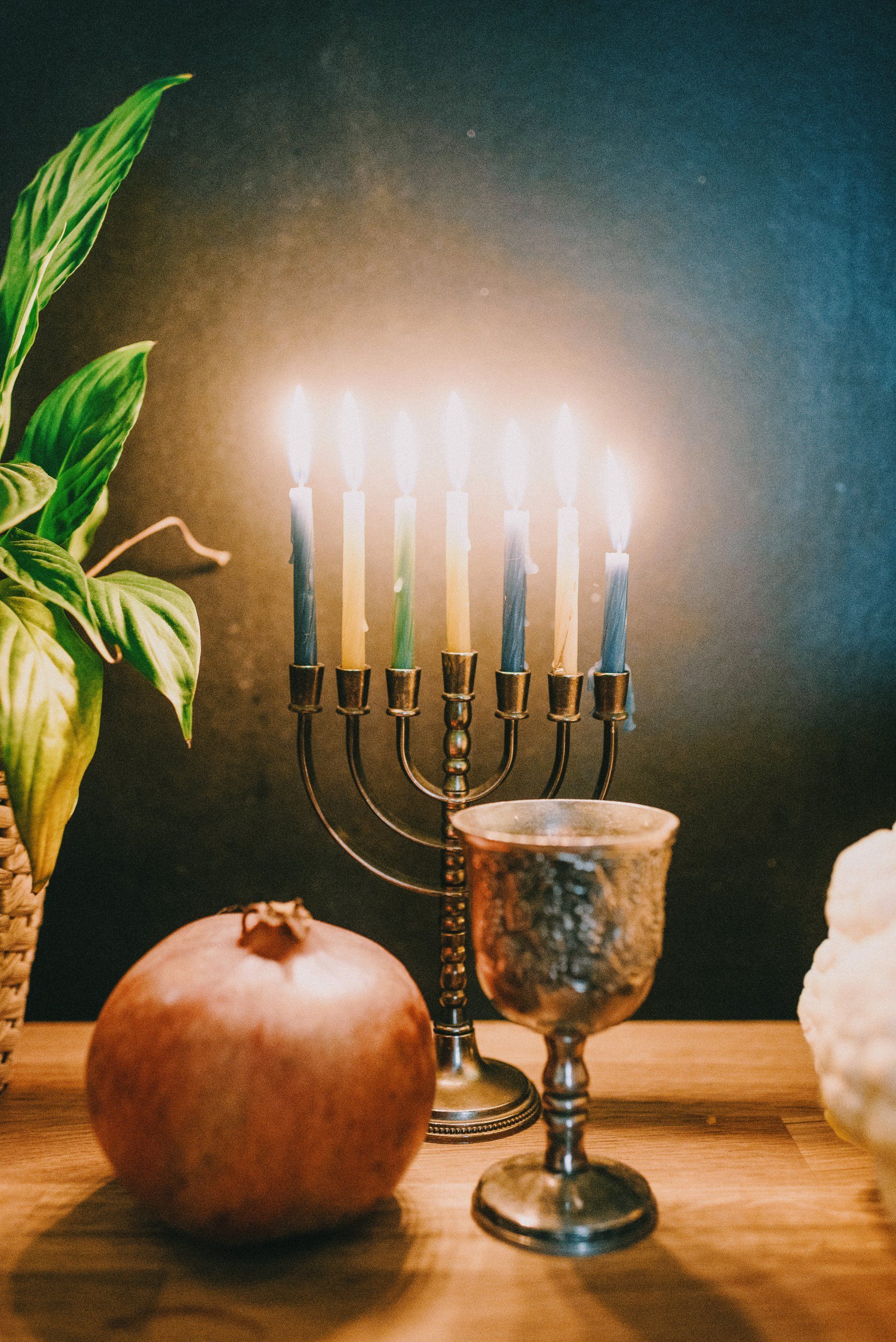Noahide Keeps The 7 Laws to God's covenant with Noah.
Here you'll find a full break down of what that looks like.
Why keep the laws?
The Noachide Laws are seven laws considered by rabbinic tradition as the minimal moral duties required by the Bible on all men.
While Jews are obligated to observe the whole Torah – 613 commandments, every non-Jew is considered a “son of the covenant of Noah” and he who accepts these obligations is considered a righteous person who is guaranteed a place in the world to come.
History
This provision is known as the Noachide Laws. Though the first man and his wife, Adam and Eve, were commanded to observe them, they emerged fully only after Noah had survived the flood that wiped away violent sinners whose wrongdoings had engulfed the world in his time.
The ancestors of the Jewish
people were also commanded in them until they were given the whole Torah at Mount Sinai, and they were then reaffirmed through Moses for all the other nations.
The Jewish idea is that the Torah of Moses is a truth for all humanity, whether Jewish or not.
The Torah
(as explained in the Talmud – Sanhedrin 58b) presents seven mitzvot for non-Jews to observe.
These seven laws are the pillars of human civilization and are named the “Seven Laws of Noah” since all humans are descended from Noah.

THE 7 LAWS
1.
Do not worship false gods.
2.
Do not curse God.
3.
Do not murder.
4.
Do not be sexually immoral.
5.
Do not steal.
6.
Do not eat a limb removed from a live animal.
7.
Set up courts and bring offenders to justice.
Breakdown
1. THEFT
1. against stealing
2. against committing robbery
3. against shifting a landmark
4. against cheating
5. against repudiating a claim of money owed
6. against overcharging
7. against coveting
8. against desiring
9. a laborer shall be allowed to eat of the fruits among which he works (under certain
conditions)
10. against a laborer eating of such fruit (when certain conditions are not met)
11. against a laborer taking of such fruit home
12. against kidnapping
13. against the use of false weights and measures
14. against the possession of false weights and measures
15. that one shall be exact in the use of weights and measures
16. that the robber shall return (or pay for) the stolen object
2. JUSTICE
1. to appoint judges and officers in each and every community
2. to treat the litigants equally before the law
3. to inquire diligently into the testimony of a witness
4. against the wanton miscarriage of justice by the court
5. against the judge accepting a bribe or gift from a litigant
6. against the judge showing marks of honor to but one litigant
7. against the judge acting in fear of a litigant’s threats
8. against the judge, out of compassion, favoring a poor litigant
9. against the judge discriminating against the litigant because he is a sinner
10. against the judge, out of softness, putting aside the penalty of a mauler or killer
11. against the judge discriminating against a stranger or an orphan
12. against the judge hearing one litigant in the absence of the other
13. against appointing a judge who lacks knowledge of the Law
14. against the court killing an innocent man
15. against incrimination by circumstantial evidence
16. against punishing for a crime committed under duress
17. that the court is to administer the death penalty by the sword
18. against anyone taking the law into his own hands to kill the perpetrator of a capital
crime
19. to testify in court
20. against testifying falsely* This point is disagreed upon by different writers: “The
Noahites are not restricted in this way but may judge singly and at once.”
3. HOMICIDE
1. against anyone murdering anyone
4. ILLICIT INTERCOURSE
1. against (a man) having union with his mother
2. against (a man) having union with his sister
3. against (a man) having union with the wife of his father
4. against (a man) having union with another man’s wife
5. against (a man) copulating with a beast
6. against a woman copulating with a beast
7. against (a man) lying carnally with a male
8. against (a man) lying carnally with his father
9. against (a man) lying carnally with his father’s brother
10. against engaging in erotic conduct that may lead to a prohibited union
5. LIMB OF A LIVING CREATURE
1. against eating a limb severed from a living animal, beast, or fowl
2. against eating the flesh of any animal which was torn by a wild beast … which, in part,
prohibits the eating of such flesh as was torn off an animal while it was still alive
6. IDOLATRY
1. against entertaining the thought that there exists a deity except the Lord
2. against making any graven image (and against having anyone else make one for us)
3. against making idols for use by others
4. against making any forbidden statues (even when they are for ornamental purposes)
5. against bowing to any idol (and not to sacrifice nor to pour libation nor to burn incense
before any idol, even where it is not the customary manner of worship to the particular
idol)
6. against worshipping idols in any of their customary manners of worship
7. against causing our children to pass (through the fire) in the worship of Molech.
8. against practicing Ov
9. against the practice of Yiddoni
10. against turning to idolatry (in word, in thought, in deed, or by any observance that may
draw us to its worship)
7. BLASPHEMY
1. to acknowledge the presence of God
2. to fear God
3. to pray to Him
4. to sanctify God’s name (in face of death, where appropriate)
5. against desecrating God’s name (even in face of death, when appropriate)
6. to study the Torah
7. to honor the scholars, and to revere one’s teacher
8. against blaspheming
Jews perceive non-Jews as bound by a set of laws–even if they are not bound by the full range of Torah law–is a significant statement. The expectation that non-Jews will set up their own system of justice became the basis for peaceful interactions between Jews and non-Jews.
The Noahide laws separated humanity after the flood from the lawless violence which brought God to the point of destroying the world. The Noahide laws stand as a testament to the Jewish belief in the need for the rule of law to protect all peoples.

SOURCES FOR FURTHER NOAHIDE INFORMATION
www.asknoah.org
http://www.7for70.net
www.noahide.org
http://noahideworldcenter.org
http://en.wikipedia.org/wiki/Noahidism
http://www.noahidenations.com
http://asknoah.org/a-moral-code-to-unite-all-mankind
http://www.wikinoah.org
